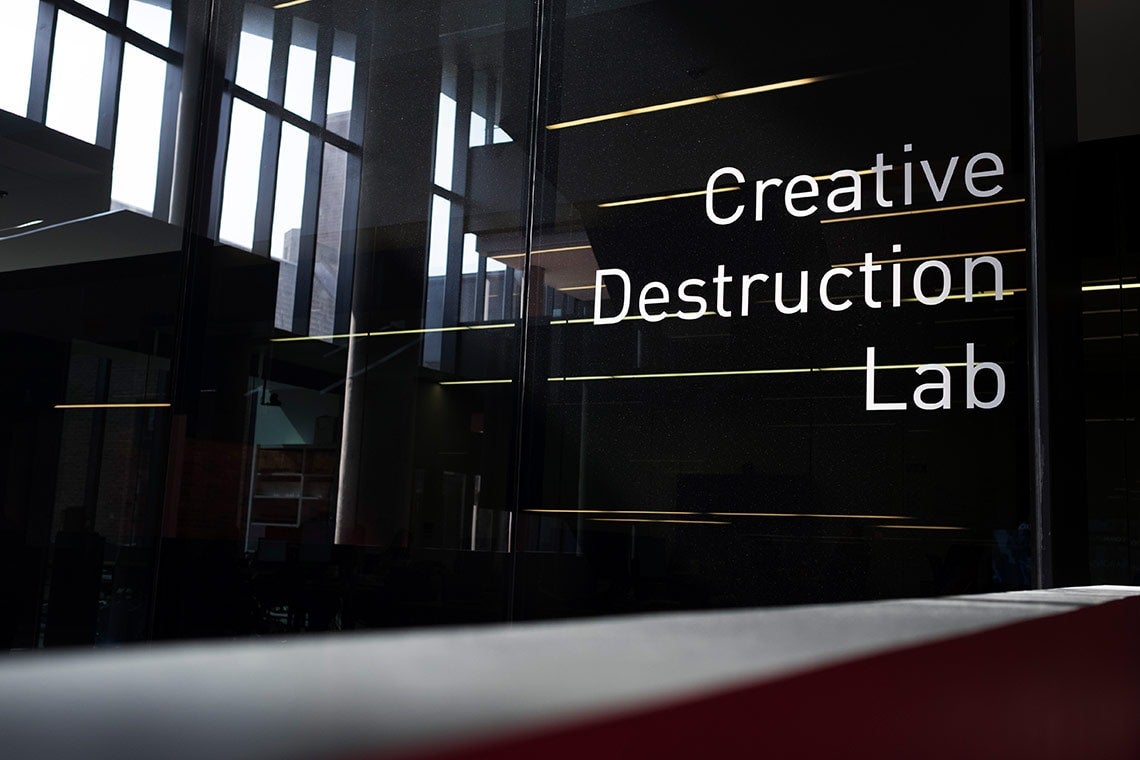Even Business Schools are Slamming Amazon’s HQ2 “Contest”

Less than a week after rumors spilled out about the upcoming locations of its HQ2 headquarters were confirmed, the reality of the Amazon’s move to East coast isn’t going over well.
Northwestern Kellogg & HKUST Lead the 2018 FT EMBA Rankings

Where should you go to school for your Executive MBA? Good question. While, the answer may not be quite so simple, an official EMBA ranking can help.
There are many things you should consider before choosing the best EMBA program for you including average graduation salary, industry employment, research interests, and more. However, a good place to start is with the 18th edition of the Financial Times Global Executive MBA Ranking. This ranking collects key data from business schools and alumni around the world to come up with a list of the top 100 best programs worldwide.
We’ve collated some of the critical data from the ranking study to give you insight into what’s going on in the world of EMBA programs.
EMBA Graduates Choose Industry and Manufacturing
Compared to full-time MBAs, EMBA graduates are much more likely to work in certain industries like manufacturing. In fact, three times as many EMBAs are employed in industry or manufacturing compared to their full-time peers. The figure accounts for 17 percent of all graduates. In comparison, only 10 percent of EMBA graduates are in consulting roles. And they’re less likely to work in finance, too.
EMBAs Earn More Money
EMBA graduates can also expect to earn more money than full-time MBAs after graduation. The average salary for an EMBA is $220,000 whereas an MBA alumnus can expect to make $146,000. It’s a large gap that’s similar to the salary gap between an MBA and a MiM graduate ($146,000 VS $67,000). Keep in mind, however, that the typical Executive MBA student is significantly older and often has more work experience.
In contrast, full-time MBAs win when it comes to salary boosts before and after earning the degree. MBA alumni generally increase their salary by 107 percent while EMBAs only experience a 59 percent boost.
Top 10 EMBA Programs
This year, the top ten EMBA programs, according to the Financial TImes, includes four joint programs. In fact, these were the top four programs in the world ranking well for post-EMBA salary, alumni leadership positions, and work experience. Each of these programs offer excellent networking opportunities thanks to different cohorts across different campuses, connecting students around the world.
Here’s how all the rankings stacked up.
1. Northwestern Kellogg & HKUST
This joint program ranks first for the third year in a row, and it’s the ninth time in 12 years that it has headed the list—the other three times it ranked second. The program is known for having the highest average salary three years post-graduation, $507,000—$140,000 more than the second-highest salary. It’s also known for having half of its alumni as company leaders three years post-graduation.

No EMBA has dominated the annual FT ranking quite like the Northwestern Kellogg & HKUST join program, earning top billing once again for 2018.
2. HEC Paris, LSE, & NYU Stern
This trium global EMBA program ranks second in 2018, up from fifth the previous year. The program is ranked first in work experience, languages, and international course experience rank. It also ranks highly in average salary ($347,970) with an expected 60 percent salary increase three years post-EMBA.
3. Tsinghua University & INSEAD
For the second year in a row, the Tsinghua-INSEAD dual degree MBA comes in third overall on the FT EMBA ranking. Located in China, Singapore, France, and the UAE, the program is known for its high salary three years post graduation ($365,746), and its high percentage of female students (45 percent).
The rest of the top ten shakes down as follows:
- EMBA—Global Asia: Columbia Business School, HKU, & London Business School
- Ceibs
- HEC Paris
- Washington University Olin Business School
- Shanghai: Jiao Tong University Antai
- IESE Business School
- MIT Sloan School of Management
Surprising Schools
There were quite a few surprises in this year’s EMBA ranking.
- Though HEC Paris has ranked in the top five since 2006 because of its joint program with NYU Stern and LSE, this was the first year the school entered the top ten ranking on its own. The HEC Paris solo EMBA program ranks sixth overall, making it the highest new entrant.
- IESE Business School took home the crown as the top EMBA program for the new criterion corporate social responsibility (CSR).
- The University of Toronto Rotman School of Management EMBA moved up the most places in 2018, rising to 47th place overall—20 places higher.

No school saw a bigger rankings jump than the University of Toronto Rotman School of Management, rising 20 spots in 2018.
FT EMBA Ranking Methodology
To come up with the 2018 EMBA ranking, the Financial Times reached out to a record 139 programs with two online surveys: the first completed by the school and the second by alumni who graduated from programs in 2014. The methodology of the ranking is as follows:
- Alumni were required to provide feedback on salary today, salary increase, career progress, work experience, and aims achieved—accounting for 55 percent of the ranking’s weight.
- Schools provided insight into ten criteria, accounting for 35 percent of the total ranking. Criteria included: gender and international diversity, board members, international program reach, and more.
- Accounting for the final 10 percent of the ranking was the FT research rank, which looks at the number of articles published by a school’s full-time faculty.
And, for the first time ever, this year’s EMBA ranking included a new criterion for corporate social responsibility (CSR). This new criterion took a look at how many of a school’s core courses were dedicated to ethics, social, and environmental issues. Weighting at 3 percent, this criteria replaced the number of Ph.D. graduates per school.
U. Toronto Invests in Rotman Innovation, Data, and Entrepreneurship

Innovation, entrepreneurship, data, and analytics all play significant roles at the University of Toronto’s Rotman School of Management. As a global center for research and academic excellence in business and society, Rotman is known for bringing together diverse views and initiatives. So, it should be no surprise that this month the Rotman School announced increased investment, from different sources, in three areas:
- $25 million in funding for the Creative Destructive Lab (CDL)
- $4 million in new funding for data and analytics initiatives
- $2.5 million to the Creative Destructive Lab Health Stream and additional financial resources in support of the Behavioral Economics in Action at Rotman (BEAR) research center.
Creative Destruction Lab Receives $25 Million

Founded in 2012, the Creative Destruction Lab (CDL) was created to address failure in the market for judgment. As a seed stage program, its goal is to help science-based companies become scalable by pairing founders with experienced entrepreneurs and investors. The nine-month program covers everything from commercialization of products to R&D and maximizing equity-value creation.
To increase the CDLs ability to help young companies, the Canadian government announced a $25 million investment in the program. The investment will allow the CDL to accelerate the commercialization of science in Canada while hopefully also attracting more investment in ventures and more intellectual property. Over four years, the CDL will help more than 1,300 science-based ventures and could create up to 22,000 new jobs.
In a recent press release, Minister Bains says:
“Creative Destruction Lab’s exciting project promises to unleash a new wave of start-up innovation across Canada, creating thousands of middle-class jobs and further securing Canada’s position as a world leader in the AI field. Our government is proud to make investments that will help turn hundreds of innovative ideas into the good jobs and companies of tomorrow.”
The investment will also help the CDL gain insight into the success of science-based startups. In particular, ventures harness new technologies such as AI, energy, health, smart cities, and space and quantum technologies will be targeted. There will also be a boost for young women in science, technology, engineering, and math (STEM) fields in the hopes of inspiring representation in the next generation of business leaders.
“This is a tremendous moment,” Tiff Macklem, Dean at the Rotman School, says. “Thank you Minister Bains, the Government of Canada and everyone that saw the vision and opportunity of the Creative Destruction Lab.”
The investment was made through the Strategic Innovation Fund; a program focused on attracting and supporting high-quality business investments across all sectors of the economy.
$4 Million for Data and Analytics

Data and analytics are an essential area of study at the Rotman School as evidenced by the launch of the new Master of Management Analytics (MMA) program as well as the TD Management Data and Analytics Lab. So, it makes sense that when the TD Bank Group (TD) was looking for a way to support the Rotman School, they decided to give $4 million in funding to explore real-world data and analytics applications.
Christian Nelissen, TD Senior Vice President of Enterprise Data and Analytics, says in a news release:
“Data and analytics are the engines powering the future of Canada’s economy. That new reality means building talented teams that have a deep understanding of the potential of data and analytics, in financial services and beyond. We are looking for visionaries who can see what’s possible—things we might not even have thought of yet.”
Specifically, the funding will go toward development and staffing of the TD Management Data and Analytics Lab, which launched in 2017. The goal of the investment is to improve student development and engagement in data and analytics, and to add expertise and resources for industry projects and cutting-edge analytic thinking. The Lab also offers workshops, hackathons, guest speakers, academic collaboration, and seed funding for the Rotman FinHub.
“By collaborating with TD, we are giving students the opportunity to engage in data-focused problem-solving,” Dean Macklem says. “We know our students are eager to take on new roles in the evolving field of data and analytics and this generous investment will allow us to move more quickly to further expand our data analytics programming and opportunities.”
Investing in Healthcare Innovation & Behavior Economics

Last, but certainly not least, TD Bank Group announced additional investments in two initiatives: innovation in healthcare and behavioral economics.
The first investment from TD is $2.5 million over five years for the Creative Destruction Lab Health Stream, which focuses on biotechnology, bioinformatics, diagnostics, and digital care. This investment will help aspiring entrepreneurs bring technological innovations to the market in the healthcare industry.
Andrea Barrack, TD’s Vice President of Global Corporate Citizenship, says:
“We know that the long-term success of our business depends upon the resilience and health of the people we serve. We’re thrilled to support the CDL with this contribution, which will help accelerate advances in healthcare through fresh thinking and entrepreneurship. At TD, we have a history and meaningful purpose of helping to enrich the lives of customers, colleagues and communities.”
The second investment from TD comes in the form of an agreement to bring additional behavioral finance resources and applications in support of the Behavioral Economics in Action at Rotman (BEAR) research center. As a founding member of BEAR, TD hopes to be able to better examine and research the underlying emotion and behaviors that push financial decision making. Also, the investment will help continue to implement behavioral finance tools into wealth management.
“Being one of the founding members of BEAR will further contribute to TD’s commitment to advancing the study and real-life applications of behavioral finance,” says Dave Kelly, Senior Vice President of TD Wealth. “The work we have done to-date with Rotman has been instrumental in enhancing the advice and services our advisors provide to our clients. Research by BEAR will enable us to better understand the underlying factors that help drive financial decision making so we can connect with our clients on a deeper, more meaningful level.”
New Yorker Cites Rotman Professor in Nobel Story – Toronto News

This week, representatives from Canada’s best business schools have utilized their skills and knowledge to make valuable contributions to the greater community. We’ve laid out the highlights below.
The Nobel Committee Honors The Economics of Market Failure – The New Yorker
A recent New Yorker article about the 2018 Nobel Prize in economics winners cites the blog of University of Toronto’s Rotman School of Management Professor Joshua Gans. Though the Nobel winners, Bill Nordhaus and Paul Romer, have not collaborated with one another, both have independently highlighted possible flaws and oversights of market economies. The article utilized Gans’s insight that the work of both winners provided a framework for economists to analyze and account for market failures.
According to thearticle, “In an idealized competitive market, prices equate the costs of producing goods with the benefits derived by consumers, and this equalizing mechanism insures that markets allocate resources and goods more efficiently than government diktat or other methods.”
Nordhaus’s research on fossil fuels and Romer’s research on goods that demonstrate advances in human knowledge suggest gaps in this narrative. Nordhaus’s work addressed that the cost of fossil fuels does not account for the damage incurred by their use, and consequent cost for future generations. This negative cost, importantly, is not accounted for in market transactions. Romer’s work explored positive spillover that is not accounted for in market transactions, such as advances in technology.
On news of Romer and Nordhaus’ awards, the Nobel Committee says:
“Both Romer and Nordhaus emphasize that the market economy, while a powerful engine of human development, has important imperfections and their contributions have thus offered insights into how government policy could potentially enhance our long-run welfare.”
You can read more about the Nobel Prize winners here.
Ryerson University Names Janice Fukakusa As Its New Chancellor – Newswire
Ryerson University has announced that Janice Fukakusa will take over as its Chancellor. Fukakusa, who received her MBA from York University’s Schulich School of Business, held senior roles at Royal Bank of Canada, including Chief Administrative Officer and Chief Financial Officer. She is currently on the board of not-for-profits like General Growth Properties, The Princess Margaret Cancer Foundation, and Cineplex. Until recently, Fukakusa was Chair of the Board of Governors for Ryerson. Fukakusa will be Ryerson’s first female Chancellor.
In her 31-year career, Fukakusa has received a variety of accolades celebrating her achievements. American Banker named her one of “The 25 Most Powerful Women In Banking” in 2016. She was also inducted into Canada’s Most Powerful Women Hall of Fame.
On news of her new role, Fukakusa says;
“I am honoured to be Ryerson’s new Chancellor, and look forward to driving the positive educational and societal changes for which the university has become known. We are leading the charge on so many important issues, and I am eager to work with students, faculty and staff in this new capacity to further advance the impressive progress that has been made to date.”
You can find out more about Fukakusa and her new role here.
Competition for Great Talent Has Become ‘Intense’ Axonify CEO Says – The Globe and Mail
The Globe and Mail profiled Carol Leaman, Chief Executive Officer of Axonify Inc. to highlight struggles facing tech employers. Leaman, whose company provides training modules for employees of corporations like Walmart and Bloomingdales, expressed that it has been increasingly difficult to woo qualified tech candidates. Amazon, Uber, and other global companies have been infiltrating the Ontario market, employing massive numbers of developers and IT personnel. Moreover, companies like Terminal have been helping U.S. firms hire Canadian developers.
/arc-anglerfish-tgam-prod-tgam.s3.amazonaws.com/public/YG6KDN4TFRGCBFLOFIYVYVVGOE.JPG)
Carol Leaman, president and CEO of Axonify / Photo via The Globe and Mail
According to Wilfrid Laurier University Professor of Organizational Human Behavior, Chet Robie, Leaman needs to offer stellar benefits and compensation in order to thrive.
“I would start working on making their compensation more competitive—and by doing that you don’t always have to increase base salary,” Robie says, alluding to benefits like work flexibility and upward mobility.
“What really resonates with this group of people doesn’t have to break the bank.”
Read more about competition in Canada’s tech market here.
The 5 Highest Paid Toronto Internships for MBAs

Toronto is Canada’s largest city and home to leading companies in both business and finance. There’s a particularly large concentration of banks as well as media companies, publishing firms, telecommunication, IT, and film production companies. There’s a little bit of everything in the city including top MBA programs such as McMaster University’s DeGroote School of Business, Ryerson University’s Ted Rogers School of Management, and York University’s Schulich School of Business.
But where should you look for paid Toronto internships? First, the industry you choose matters. According to the 2018 employment report from the University of Toronto’s Rotman School of Management, you should stick with three industries if you want to earn the most money: law/legal services ($18,000 per month), consulting ($6,332 per month), and financial ($5,623 per month).
Specifically, you might want to check out these five high paying internships in the Toronto metro.
The 5 Highest Paid Toronto Internships for MBAs

Sun Life Financial is a Canadian financial services company headquartered in Toronto. It is as one of the largest life insurance companies in the world, spanning back to 1865. The company pulls in around $28.5 billion in revenue each year, with over 30,000 employees worldwide.
MBA students looking for an MBA internship have multiple options. In particular, there are positions in finance, HR, and real estate. There are also co-op options in the Business Leaders Internship Program. This program gives students ten weeks to work in a number of functional areas to learn where they can be successful.
According to Glassdoor, interns can expect to earn:
- Salary: $3,166 – $4,333 Per Month

Ontario Power Generation, owned by the government of Ontario, is responsible for half of the electricity generation in the Province. The company uses nuclear, hydroelectric, wind, gas, and biomass electricity. The energy diversity helps pull in about $4.73 billion in revenue each year, employing 10,840 people.
For MBA students, the company offers both winter and summer internship opportunities. Interns analyze new business opportunities, pitch marketing, complete customer research, and perform business model development.
Glassdoor reveals that an average intern earns:
- Salary: $4,160 – $5,440 Per Month

BMO Financial Group is a Canadian multinational banking and financial services company. It’s one of the big five banks of Canada and is the fourth-largest by market capitalization and assets. In fact, it’s one of the ten largest banks in all of North America with $21.7 billion in revenue each year and 45,200 employees.
YOU MAY ALSO LIKE: What MBAs Should Know About BMO Financial
An MBA internship at BMO can cover a variety of job functions from financial modeling analyst to program management, investment banking, and capital markets. Through the program, students gain hands-on experience working with a team of seasoned professionals.
According to Glassdoor, an MBA intern can expect to earn:
- Salary: $3,000 – $4,160 Per Month

The Royal Bank of Canada (RBC) is a multinational financial services company and the largest bank in the country by market capitalization. It services over 16 million clients worldwide with personal banking services and products. 2017 estimates were around $40.6 billion in annual revenue with 79,000 employees.
RBC is home to a robust internship program with opportunities to work as a data scientist, business analyst, capital markets advisor, global equities, and more. Each internship program provides MBA students with the chance to work as a strategic advisor across a variety of industries from energy to health care, technology, real estate, media, and more.
As an intern, you can expect to earn a good salary according to Glassdoor:
- Salary: $4,833 – $5,166 Per Month

TD Securities is another Canadian investment bank and financial services company, offering advisory and capital market services. It is particularly known for providing expertise in corporate and investment banking, capital markets, and global transaction services. In 2016, TD Securities earned $3.03 billion in revenue with just 3,800 employees.
As far as internships for MBA students, there are many interesting 10-week options with business tracks in corporate and specialty banking as well as retail and product. These internships provide practical, hands-on experience, and can lead to participation in the 12-month MBA Associate Track Program post-graduation.
Based on intern salaries submitted to Glassdoor, MBA students can expect to earn:
- Salary: $3,250 – $4,166 Per Month
Toronto Rotman School of Management MBA Deadlines and Essays Announced

The newest batch of University of Toronto MBA deadline dates have been announced for the Rotman School of Management, beginning early next October.
Rotman MBA Deadlines
Round One
Deadlines: October 1, 2018
Notifications: December 14, 2018
Round Two
Deadlines: January 7, 2019
Notifications: March 8, 2019
Round Three
Deadlines: March 4, 2019
Notifications: May 3, 2019
Round Four
Deadlines: April 29, 2019
Notifications: May 31, 2019
Head over to the official Chicago Booth website for more application information.
Toronto Rotman School of Management MBA Essays
In addition to the Rotman MBA deadlines, the business school has also unveiled its newest essay questions. A new statement from the school reads:
“The full-time MBA program at the University of Toronto, Rotman School of Management attracts top talent from an incredibly diverse range of professional and academic backgrounds around the world so we don’t really have a typical candidate. In admissions, we look for intellectual horsepower, experience, and impact, communication, and presence.
Beyond that, our admitted students stand out by doing interesting things with their personal and professional lives — something we describe as the ‘spike factor’; what are the things that you have done in your life that demonstrate Passion/ Grit/ Resilience/ Innovation/ Drive/ Ambition and more? This can cross all or any aspects of life outside of work – hobbies, volunteerism, awards, entrepreneurial ventures, sports and the arts. We believe that exposure to a rich diversity of viewpoints makes for a superior learning experience, and pride ourselves on building a diverse class of exceptional individuals who will go on to make the School proud as professionals and alumni.”
Rotman’s unique essay asks applicants to provide “1-3 of your ‘spikiest’ pictures” to the supplemental item section, which you can find here. With the photos, applicants must “illustrate your ‘spike factor,’” with up to 1000 words.
Applicants must also “list 3-5 attributes or characteristics that best describe you, with one word per piece.”
Lastly, applicants must provide a video and time-written response, which is as follows:
“The video interview component is a required part of Rotman Admissions process designed to give all candidates guaranteed “face time” with the Admissions Committee and showcase your personality, characteristics, passions, and values.
You will have an opportunity to test the technology, and then will be asked two taped questions, followed by a real-time written response (no video with this component.) Both questions are personality/values based and are designed to be answered without any advanced preparation and will only take a few minutes to complete. The written question is designed to simulate the typical email communications you will create as a Rotman MBA student. After completing your questions, you will receive a confirmation email and unique URL to input into this section of the application and complete the live component. Good luck and have fun with the process!”
